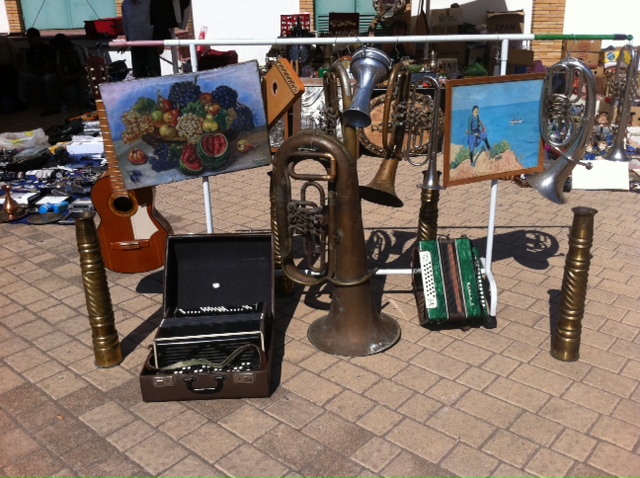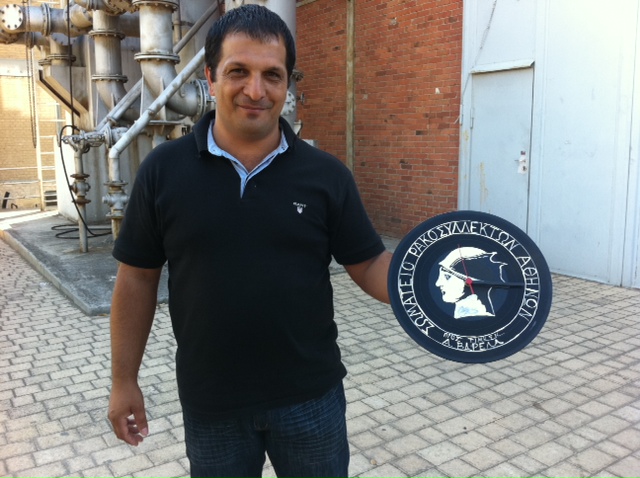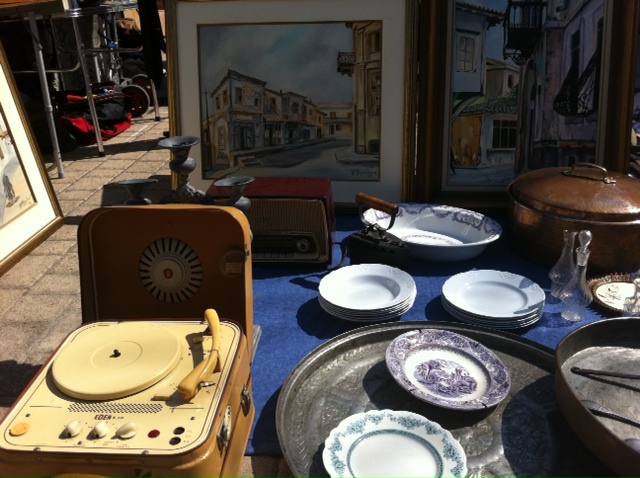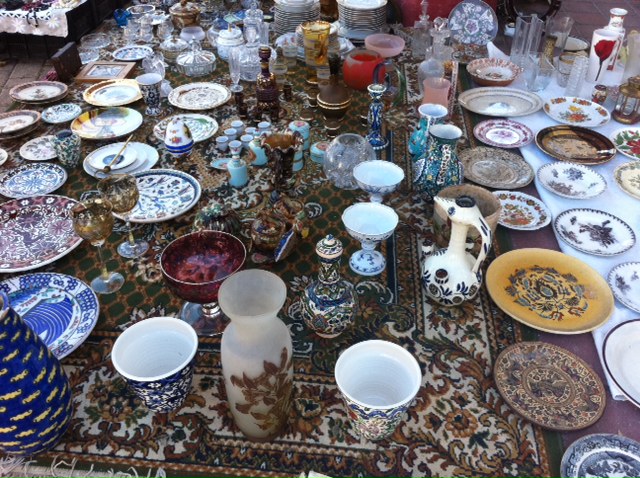Anastasia Balezdrova
Old radios, magnificent lampshades, crystal products and china, silver-plated cutlery and candlesticks, paintings, clothes and books filled the courtyard of Technopolis cultural centre in Athens within the context of the first festival of scavengers.
GRReporter met with the people for whom the waste of others is gold. We learned from the conversation that they have their own organization and that interest in its membership has increased since the crisis began.

The scavengers, who work to date, created the Hermes Association in 1992. They took this decision in order to protect themselves from persecution by the police. At first, they did not have a building but in 2003, the municipality of Athens granted them a place on Piraeus Street to sell their "goods". "We moved to Iera Odos Street in May this year. We have 728 members and 500 of them are active. We stopped taking new members three years ago, because if we had continued we would become 3-4000 scavengers within several months. The interest of people who want to join us and sell at our market is huge because of the crisis," Feridoun Memish, secretary of the Association, said.
 According to him, there are a huge number of scavengers in Athens. "We cannot accept just anyone and so, we check those willing to join us. First, we determine whether the candidates really need this work and require at least two of our members to guarantee for them. We don’t want to accept cheats."
According to him, there are a huge number of scavengers in Athens. "We cannot accept just anyone and so, we check those willing to join us. First, we determine whether the candidates really need this work and require at least two of our members to guarantee for them. We don’t want to accept cheats."
The members of the Association receive a membership card. It gives them the right to sell at the market what they find in dustbins, under the auspices of the municipality and the police do not chase them.
Yiannis Diamantidis – a scavenger for 22 years and a founding member of the Association said that their work is not an officially recognized profession. "None of us has any insurance. 90% of members live on social benefits."

According to scavengers, the situation in Europe is the same. The Greek association was founded on the example of similar associations in other European countries.
"We could say that we are actually municipal workers without any pay because we recycle the waste. According to the statistics of the municipality, scavengers gathered 24% of the waste in Athens 10 years ago. The members of the Association were 80 in number then. Given that we number 928 today, you can calculate the size of our assistance to the municipality."
The Association said that all the things they sell are "clean." "We do not want stolen things, so we accept very carefully our members. We had only one such case and we immediately chased this man away and delivered him to the police. A passerby revealed him by chance after seeing his own things among his stuff."
Scavengers believe that they are useful to culture and society with their work. "Sometimes we find works of art. Recently, one of our members found a Eugenios Voulgaris’ book published in Vienna in 1806, which we gave to the Cultural Centre of the Municipality. Then, we realized that there are only 10 copies of this book. This means that we recycle history as well. Do not forget that the public would not know the poet Andreas Kalvos if one of our predecessors had not found his "Odes" in the waste. He gave them to Kostis Palamas, after which they were published."
In many cases, scavengers do not have to dig in the dustbins. "The householders know us and give us the things directly. Other times, they leave them near the dustbins. The clothes are in plastic bags, washed and even ironed. We very rarely take dirty clothes, which we wash if we decide to sell them. We do not repair pictures and other items, the buyers repair them themselves." People often call them to clean the house of a deceased relative and provide them with his or her belongings, which the scavengers sell at the market.

The conversation made it clear that the economic crisis has affected this "business" too. "We had customers from all over the country before, who came to complement their collections. These people are gone. Only those, who want to buy things they need at very low prices, come."
The goods have also decreased in number because "people throw away less stuff. They have rarely been calling us to clean over the past three years."
Last but not least they mention the bad attitude towards them. "People threw water at me, not to mention insults," veteran Yiannis Diamantidis said. Walking the streets at night has also become an adventure because of increased crime.
"Many people think we do not do much, but they are wrong. Do you know what it means to hurry every night to get ahead of the trucks to collect the waste because your livelihood depends on it? We do this all week, we are at the market throughout the day on Sunday, and we spend the next week with the profit of about 50 - 100 euro. However, I think we will survive," the secretary of the Association added.
The festival ended today but scavengers can be found at the market on Iera Odos Street every Sunday. And there actually are hidden treasures among the numerous objects.